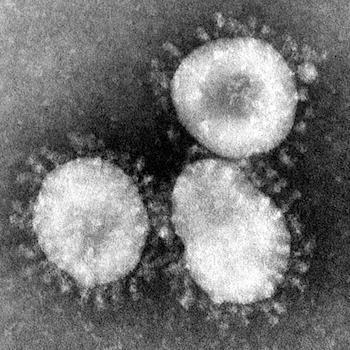I have great respect for the Centers for Disease Control and Prevention (CDC) and the World Health Organization (WHO). Especially when it comes to fighting infectious disease, those two organizations are staffed with real-world superheroes.
Unfortunately, at times, both organizations also have made forehead-slapping decisions. The CDC recently rectified one of them when it reversed its blanket recommendation against vaping. However, the CDC still is conducting a counterproductive war against prescription opioids which does nothing other than harm chronic pain patients.
London Hears a WHO
This week, the WHO has made the news for two terrible decisions. Writing for the internationally renowned journal Science, Jennifer Couzin-Frankel reports that public health officials in the United Kingdom are hopping mad over the WHO's decision to issue warnings against vaping. (Did WHO not learn any lesson from observing the CDC?) The WHO claims that "there is not enough evidence to support the use of these products for smoking cessation."
Nonsense, says the UK (and ACSH). The UK experts accused the WHO of spreading "blatant misinformation" and accused the WHO of having "a history of anti-vaping activism that is damaging their reputation."
Ouch. Scientists don't talk like that to each other. (Well, not publicly, anyway.) As we have reported multiple times, vaping is a good way for smokers to quit. Because addiction is inherently bad and e-cigarettes aren't entirely safe, nobody should begin vaping for the fun of it. But scaring away people who might use them to quit cigarettes isn't just counterproductive; it's unscientific and plainly idiotic. The CDC just learned this lesson. Why hasn't the WHO?
Paging Doctor WHO
The second decision is even more perplexing. A new coronavirus -- the same family of viruses as Severe Acute Respiratory Syndrome (SARS) and Middle East Respiratory Syndrome (MERS) -- has emerged in China. The New York Times reports that the virus has sickened more than 800 people in seven countries and killed 26. The Chinese government has quarantined roughly 22 million people. Even Shanghai Disneyland shut down.
Coronaviruses can be unpredictable. Some are just variations of the common cold, while others are deadly. SARS erupted on the global stage and then disappeared just as quickly. MERS, on the other hand, still lingers in a few regions around the world.
Combine all that with the fact that China has a sordid history of covering up and downplaying the extent of infectious diseases, and it is rather a slam-dunk case that we are facing a global public health crisis. But the WHO disagrees. The organization said it was "too early" to call it a global emergency. One wonders if somebody at the WHO is doing a favor for a Chinese official.
WHO Dat?
Those British scientists who harshly scolded the WHO may be on to something. The tricky thing about reputations is that they take years to build but mere moments to destroy. The WHO should be on notice.




